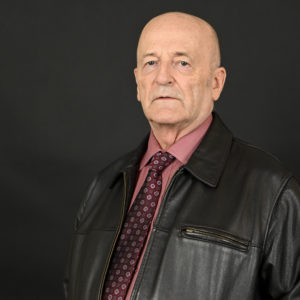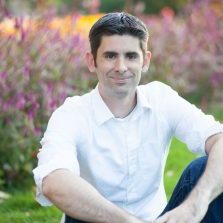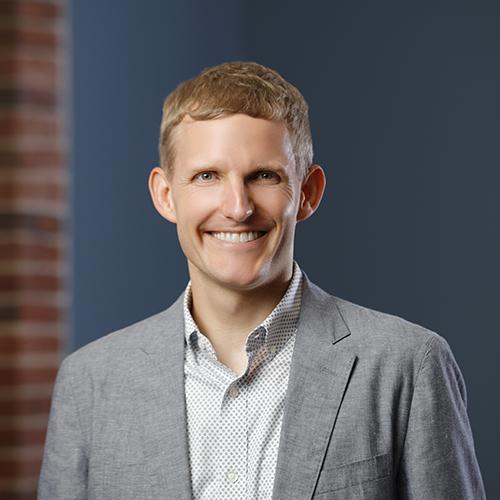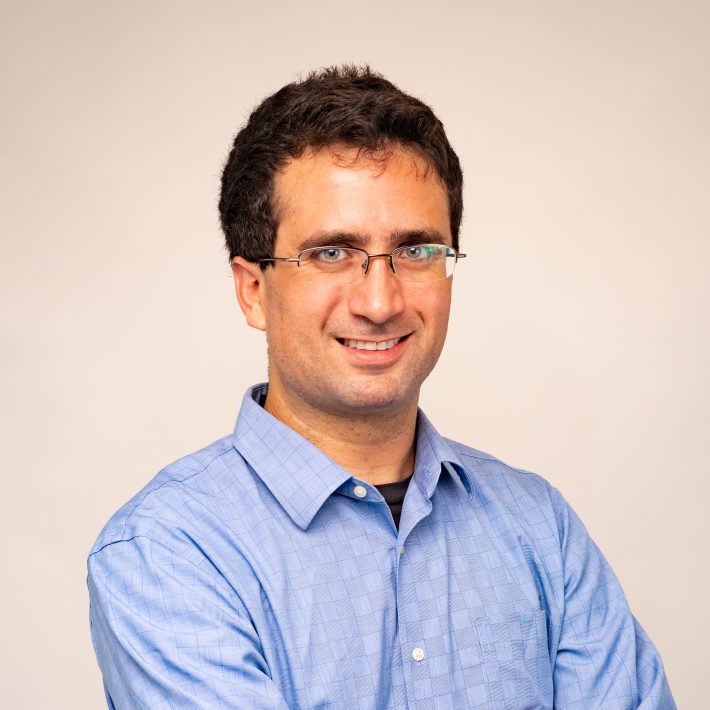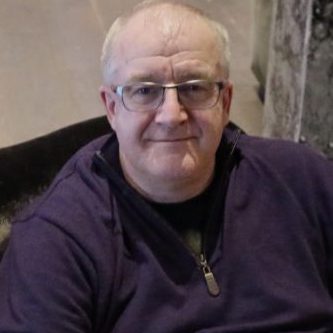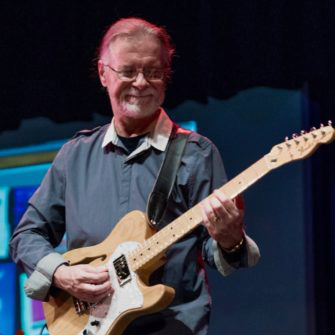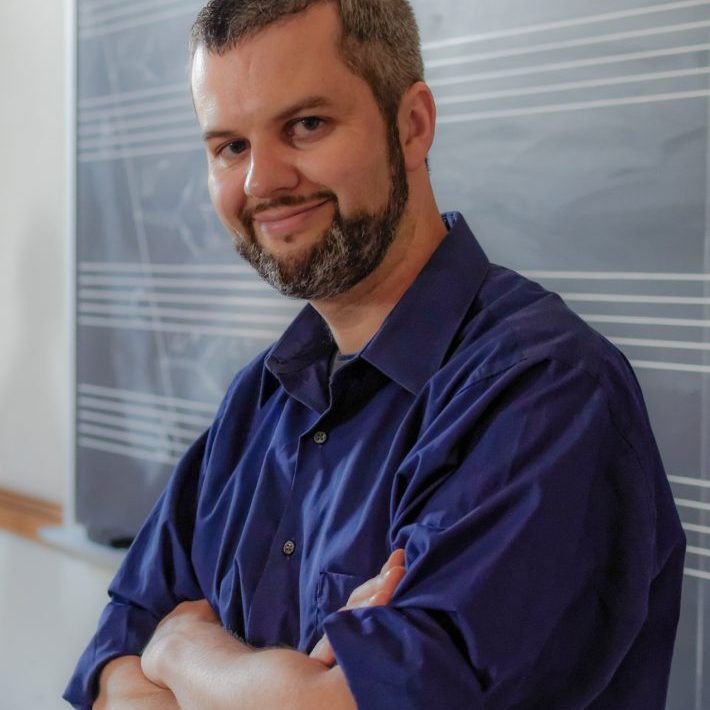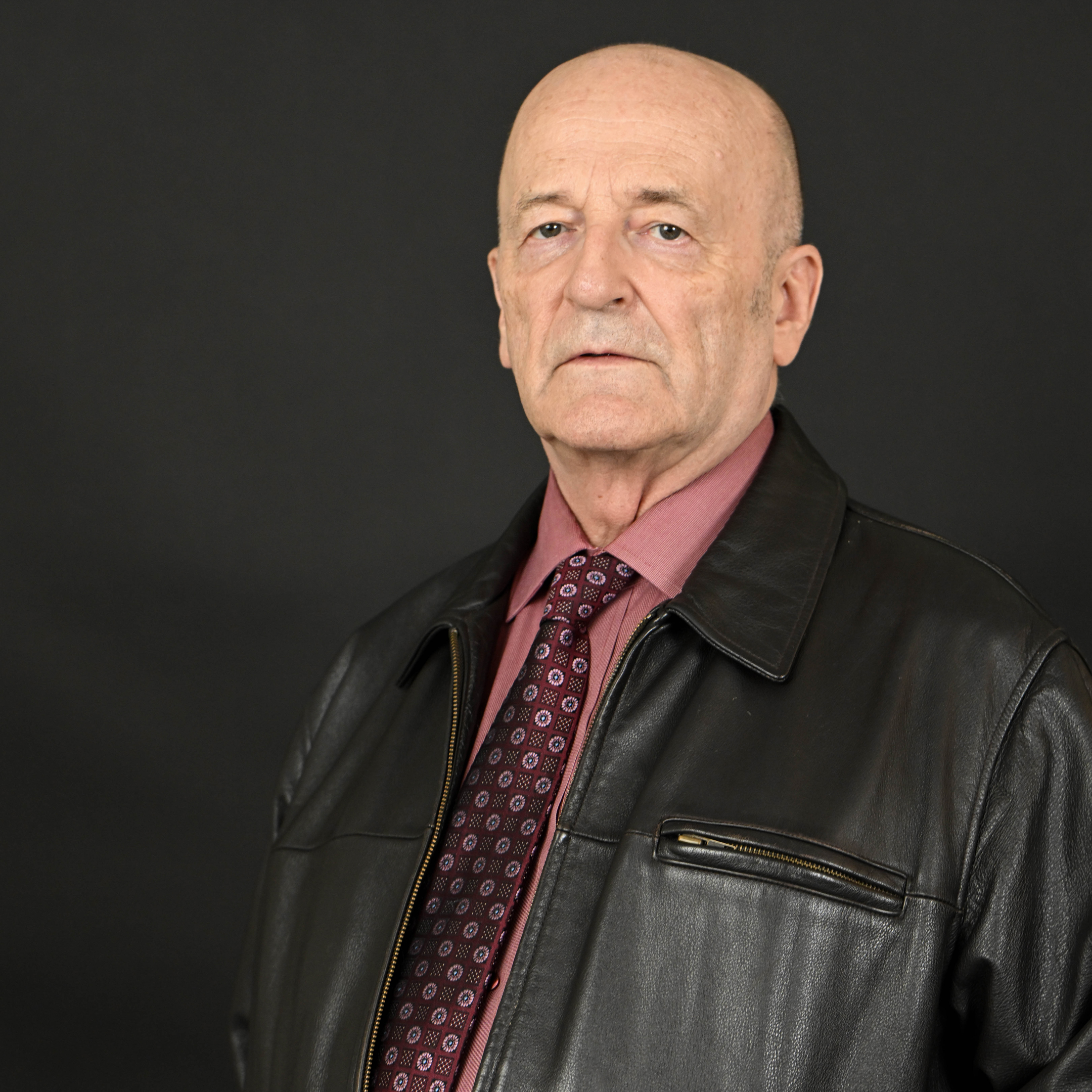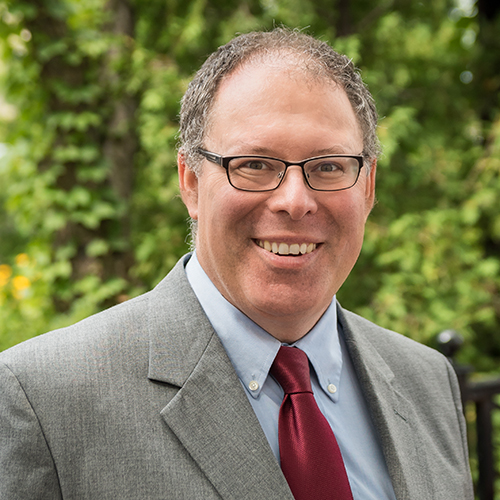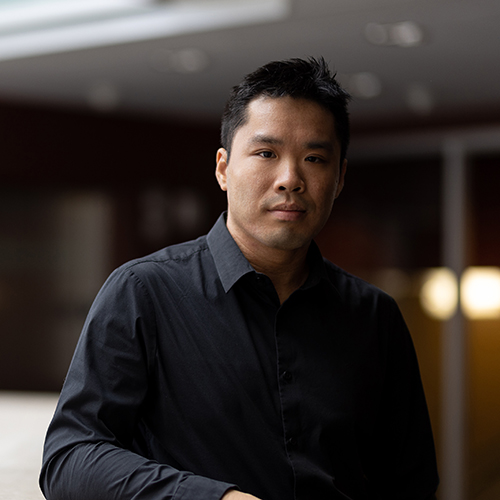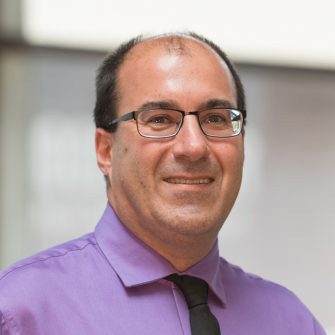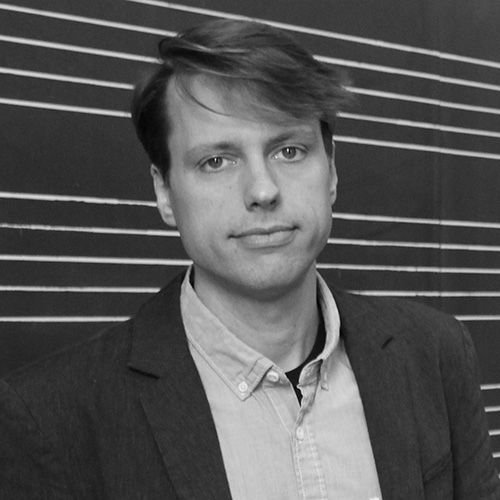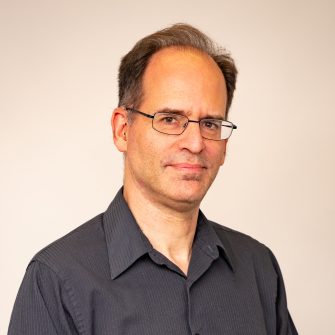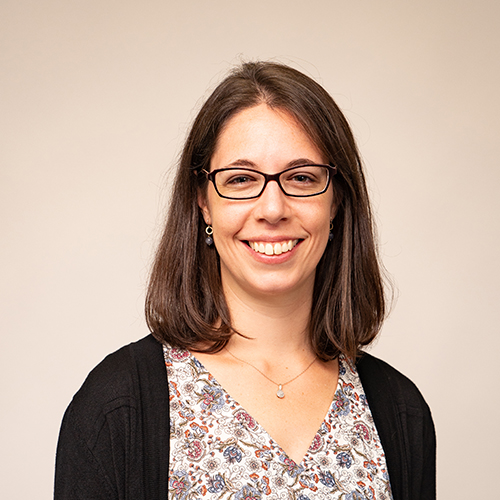Jonathan Dunsby
Professor of Music Theory
BIOGRAPHY
BA in music, First Class, Oxford University, aged 20; PhD in music theory, adviser Alexander Goehr, Leeds University, aged 23. Piano pupil of Dame Fanny Waterman; prizes in Geneva, Leeds, Munich competitions; winner of the Commonwealth Competition.
Articles and reviews published in journals including Circuit, Journal of the American Musicological Society, Journal of Music Theory, Music Analysis, Music and Letters, Music Theory Spectrum, Musicae Scientiae, The Musical Quarterly, 19th‑Century Music, 20th-Century Music; articles on ‘memory’ and ‘performance’ in The New Grove; book chapters include music-analytical studies of Debussy, Schoenberg, Schumann; books include Performing Music: Shared Concerns (OUP, 1996) and Making Words Sing: Nineteenth- and Twentieth-Century Song (CUP, 2004); co-author with Arnold Whittall of Music Analysis in Theory and Practice (Faber, 1986); translator from French of Jean-Jacques Nattiez, The Battle of Chronos and Orpheus: Studies in Applied Musical Semiology (OUP, 2004); co-editor with Jonathan Goldman of The Dawn of Music Semiology (University of Rochester, 2017) including chapter ‘Music Semiology in the Mind of the Musician’; co-translator from French of Pierre Boulez, Music Lessons (Faber, 2018).
Founding Editor of the journal Music Analysis (1982-6); Life President of the (UK) Society for Music Analysis; President, Music Theory Society of New York State, 2009-13.
Guest lectures including Brazil, Canada, China, Finland, France, Greece, Singapore, South Korea, Spain, in addition to frequent appearances in the UK and USA.
Appointments include King’s College London, University of Southern California, University of Reading; Visiting Fellow at Princeton (Harkness Fellow, 1976) and Oxford (New College, 1992); in 2006-7 Slee Professor of Music Theory, SUNY University at Buffalo; faculty, Eastman (2007-).
WORKS AND PUBLICATIONS
| BOOKS | |
| 2004 | Making Words Sing: Nineteenth- and Twentieth-Century Song (Cambridge, CUP), 153 |
| Translation from the French, Jean-Jacques Nattiez, The Battle of Chronos and Orpheus (Oxford, OUP), 360 | |
| 1995 | Performing Music: Shared Concerns (Oxford, Clarendon), jx + 104; 1996, revised paperback edition |
| 1993 | Editor: Models of Musical Analysis: Early Twentieth-Century Music (Oxford, Blackwell), xi + 153pp. ‘Introduction’, ix-xi |
| 1992 | Schoenberg: Pierrot Lunaire (Cambridge, CUP), x + 84 |
| Series Editor: Models of Musical Analysis: Music Before 1600, ed. Mark Everist (Oxford, Blackwell) | |
| 1988 | Music Analysis in Theory and Practice, co-authored with Arnold Whittall (London, Faber), vi + 250 |
| 1981 | Structural Ambiguity in Brahms: Analytical Approaches to Four Works (Ann Arbor, UMI Research Press), vii + 120; revised version of 1976 PhD thesis |
| JOURNAL EDITOR | |
| 1982-86 | Music Analysis (Oxford, Blackwell), Vols 1-5,1753pp. |
| ARTICLES/CHAPTERS IN BOOKS | |
| In press | ‘Musical Performance Studies, and Webern: What is the Question?’, in The Phenomenon of Musical Performance, ed. Angelo Martingo, in association with the University of Lisbon [2007], 6,000 words, ‘keynote chapter’; publication in Portuguese |
| 2008 | ‘Countless Western Art Music Recordings: Towards a Theory of What to Do with Them’, in What Kind of Theory is Music Theory: Epistemological Exercises in Music Theory and Analysis I, ed. Per Broman and Nora Engebretson (Stockholm, University of Stockholm Press; Stockholm Studies in Musicology), 187-201 |
| 2007 | ‘Why Sing? Lieder and Song Cycles’, in The Schumann Companion, ed. Beate Perrey (Cambridge, CUP), 102-22 |
| 2005 | ‘Preface’, Music Theory and Analysis in the Writings of Arnold Schoenberg (1874-1951), Norton Dudeque (Aldershot, Ashgate), x-xiii. |
| 2004 | ‘Music-Analytical Trends of the Twentieth Century’, in Order and Disorder: Music-Theoretical Strategies in 20th-Century Music, ed. Peter Dejans (Leuven, Leuven University Press), 11-28 ‘Schoenberg’s Pierrot keeping his Kopfmotiv”, in Pierrot Lunaire: Albert Giraud — Otto Erich Hartleben — Arnold Schoenberg, ed. Mark Delaire and Jan Herman (Louvain, Peeters), 67-7 |
| 2003 | ‘All the Dancers know it and it is Valid for All Times: Goehr, Kafka and The Law of the Quadrille’, inSing, Ariel: Essays and Thoughts for Alexander Goehr”s Seventieth Birthday, ed. Alison Latham (Aldershot, Ashgate), 171-9 |
| 2002 | ‘La tessitura’, ‘Analisi ed esecuzione musicale’, Enciclopedia delta musica, II, II sapere musicale, ed. Jean-Jacques Nattiez (Torino, Einaudi), 171-84,980-96 |
| Thematic and Motivic Analysis’, The Cambridge History ol Western Music Theory, ed. Thomas Christensen (Cambridge, CUP), 907-26 ‘‘Friede auf Erden, Op. 13′, in Arnold Schonberg: Interpretationen seiner Werke, ed. Gerold Gruber (Laaber, Laaber), 1, 172-80 | |
| ‘Performers on Performance’, in Musical Performance: A Guide to Understanding, ed. John Rink (Cambridge, Cambridge University Press), 225-36 | |
| 2001 | ‘Chamber Music and Piano’, The Cambridge History of Nineteenth-Century Music, ed. Jim Samson (Cambridge, CUP), 500-21 |
| 2000 | ‘Memory’, ‘Performance’, The Revised New Grove Dictionary of Music (NGIl) (London, Macmillan) |
| 1997 | ‘Schoenberg and Present-day Theory and Practice’, in Constructive Dissonance: Arnold Schoenberg and the Transformations of Twentieth-Century Culture, ed. Christopher Hailey (Berkeley, UC Press), 188-95 |
| 1996 | The Poetry of Debussy’s En blanc et noir, in Analytical Strategies and Musical Interpretation: Essays on Nineteenth- and Twentieth- Century Music, ed. Craig Ayrey and Mark Everist (Cambridge, CUP), 149-68 |
| ‘Musicology and Culture’, in A Dictionary of Cultural and Critical Theory, ed. Michael Payne (Oxford, Blackwell), 355-8 | |
| 1994 | ‘Criteria of Correctness in Music Theory and Analysis’, in Theory, Analysis and Meaning in Music, ed. Anthony Pople (Cambridge, CUP), 77-85 |
| 1992 | ‘Music Analysis: Commentaries’, in Companion to Contemporary Musical Thought, ed. John Paynter et al. (London, Routledge), 634- 49 |
| 1990 | ‘Schenkerian Theory in Great Britain: Developments and Responses’, in Schenker Studies, ed. Hedi Siegel (Cambridge, CUP), 182-90 (with bibliography by John Rink, 191-92) |
| 1983 | The Multi-Piece in Brahms: Fantasien, Op. 116′, in Brahms: Biographical, Documentary and Analytical Studies, ed. Robert Pascall (Cambridge, CUP), 167-89; also published as ‘La Obra Multiple en Brahms: Las Fantasias Op. 116’, trans. R. Silles, Quodlibet: Revista de Especializacion Musical, 9, 1997, 97-119 |
| ARTICLES IN REFEREED JOURNALS | |
| In press | (translation) Jean-Jacques Nattiez, ‘Is Timbre a Secondary Parameter?’, Music Perception |
| 2010 | ‘Reflections on Music Theory Pedagogy: Virtual and Archeological Known Unknowns’, Journal of Music Theory Pedagogy, 24, 175-95. |
| 2009 | ‘Roland Barthes and the Grain of Panzéra’s Voice’, Journal of the Royal Musical Association, 134/1, 113-32. |
| 2006 | ‘What kind of history is The Cambridge History of Twentieth-Century Music?’, Circuit: musiques contemporaines, 187-93. |
| 2005 | ‘Adorno’s Image of Schubert’s Wanderer Fantasy Multiplied by Ten’, 19th-Century Music, 29/1 , 41-7. |
| 2002 | ‘Scenarios Mostly from the Early Days of MusA’, Music Analysis, 21/1, 5-11. |
| 2000 | (translation) Jean-Jacques Nattiez, ‘Linguistic Models and the Analysis of Musical Structures’, Rivista Italiana di Musicologia (translated into English from French), 35, 379-410. |
| 1999 | ‘Recent Schenker: The Poetic Power of Intelligent Calculation (or, The Emperor’s Second Set of New Clothes)’, Music Analysis, 18/ 2, 263-73 |
| 1998 | ‘Fortenotes’, Music Analysis,17/2, 177-81. |
| 1995 | A Slight Oversimplification: An Interview with Arnold Whittall’, Music Analysis, 14/2-3, 131-9. |
| 1989 | ‘Performance and Analysis of Music’, Music Analysis, 8/1-2, 5-20; also published in Portuguese as ‘Execucao e Analise Musical’, Opus, 1/1, 6-23. |
| 1988 | ‘Considerations of Texture’, Music & Letters, 70/1 , 46-57. |
| 1987 | ‘The Formal Repeat’, Journal of the Royal Musical Association, 112/2,198-207. |
| 1984 | ‘A Bagatelle on Beethoven’s WoO 60’, Music Analysis, 3/1 , 57-68. |
| 1983 | ‘Music and Semiotics: The Nattiez Phase’, The Musical Quarterly, 69/1, 27-43. |
| 1982 | ‘A Hitch Hiker’s Guide to Semiotic Music Analysis’, Music Analysis, 1/3, 235-42. 1981 |
| ‘The Case for a Schenkerian Semiotic’, co-authored with John Stopford, Music Theory Spectrum, 3, 49-53. | |
| 1980 | ‘Schoenberg on Cadence’, Journal of the Arnold Schoenberg Institute, 4/1, 41-9. |
| 1977 | ‘The Stiedry Collection’, Journal of the Arnold Schoenberg Institute, 1/3, 152-69. |
| ‘Schoenberg’s Premonition, Op. 22, No. 4, in Retrospect’, Journal of the Arnold Schoenberg Institute,1/3, 137-49. | |
| ‘Schoenberg and the Writings of Schenker’, Journal of the Arnold Schoenberg Institute, 2/1, 26-33. | |
| ‘The Steuermann Collection’, Journal of the Arnold Schoenberg Institute, 2/1,63-71. | |
| OTHER ARTICLES | |
| 1994 | ‘Acts of Recall’, The Musical Times, 138, 12-17. |
| 1989 | ‘Pierrot Lunaire and the Resistance to Theory’, The Musical Times, 130, 732-6. |
| 1980 | ‘Heinrich Schenker and the Free Counterpoint of Strict Composition’, review-article on Heinrich Schenker, Free Composition (New York: Longman, 1979), RMA Research Chronicle, 16, 140-8. |
Reviews/Various
| REVIEWS | |
| In press | Michiel Schuijer, Analyzing Atonal Music: Pitch-Class Set Theory and Its Contexts (Rochester, University of Rochester Press, 2008), Dutch Journal of Music Theory. |
| 2008 | Lawrence Kramer, Why Classical Music Still Matters (Berkeley: UC Press, 2007), Music and Letters, 89/4, 675-7. |
| 2005 | Aaron Ridley,The Philosophy of Music: Theme and Variations (Edinburgh: Edinburgh University Press, 2004), Music and Letters, 87/2, 295-8 |
| 2003 | Richard Parncutt and Gary McPherson, eds, The Science and Psychology of Music Performance: Creative Strategies for Teaching and Learning (Oxford: OUP, 2002), British Journal of Music Education, 20/2, 215-7 |
| 1999 | James Baker, ed., Music Theory in Concept and Practice (Rochester: University of Rochester, 1997),Music Theory Spectrum, 21/1, 105-9 |
| 1997 | Peter Kivy, Authenticities: Philosophical Reflections on Musical Performance (Ithaca: Cornell, 1995),Music & Letters, 78/1,132-5 |
| John Rink, ed., The Practice of Performance: Studies in Musical Interpretation (Cambridge: CUP, 1995), Musicae Scientiae, 1/1, 129-32 | |
| 1990 | Gerald Barry, Sur les Pointes, Roger Marsh, Music for Piano and Wind Instruments [new music],Music & Letters, 71/1, 155 |
| 1989 | J. and J. Christensen, From Arnold Schoenberg’s Literary Legacy: A Catalog of Neglected Items(Warren, Ml: Harmonie, 1988), Music & Letters, 70/3, 428 |
| Robert Gjerdingen, A Classic Turn of Phrase: Music and the Psychology of Convention (Philadelphia: University of Philadelphia, 1988), Music & Letters, 70/3, 406-07 | |
| 1988 | lan Bent, with William Drabkin, Analysis (London: Macmillan, 1987), The Musical Times, 129/No. 1741, 81 |
| Michael Musgrave, Brahms II: Biographical, Documentary and Analytical Studies (Cambridge: CUP, 1987), Music & Letters, 69/2, 284-85 | |
| 1986 | Walter Frisch, Brahms and the Principle of Developing Variation (Berkeley: UC Press, 1984), Music & Letters, 67/1, 88-90 |
| 1984 | Oliver Neighbour et al., ‘The New Grove’ Second Viennese School (London: Macmillan, 1983), Music & Letters, 65/4, 385-87 |
| 1982 | Felix Salzer and Carl Schachter, eds, Music Forum, V (New York: Columbia University, 1980), Music & Letters, 63/1-2,107-11 |
| Wendy Steiner, ed., The Sign in Music and Literature (Austin: University of Texas, 1981), Journal of Music Theory, 26/2, 362-69 | |
| 1981 | Karl-Otto Plum, Untersuchungen zu Heinrich Schenkers Stimmfuhrungsanalyse (Regensburg: Bosse, 1979), Music & Letters, 62/2, 212-15 |
| Dika Newlin, Schoenberg Remembered: Diaries and Recollections 1938-76 (New York: Pendragon, 1980), Music & Letters, 62/3-4, 402-03 | |
| 1980 | Tetsuo Satoh, A Bibliographic Catalog with Discography and a Comprehensive Bibliography of Arnold Schonberg (Tokyo: Kunitachi College, 1978), Music & Letters, 61-/2, 193-95 |
| 1979 | David Epstein, Beyond Orpheus (Cambridge, Mass.: MIT, 1979), Journal of the Arnold Schoenberg Institute, 3/2, 194-202 |
| George Perle, Serial Composition and Atonality and Twelve-Tone Tonality (Berkeley: UC Press, 1977, 1978), Music & Letters, 60/3, 363-66 | |
| 1977 | Jean-Jacques Nattiez, Fondements d’une semiologie de la musique (Paris: Union Generale d’editions, 1975), Perspectives of New Music, 15/2,226-33 |
| Jan Maegaard, Studien zur Entwicklung des dodekaphonen Satzes bei Arnold Schonberg(Copenhagen: Hansen, 1972), Perspectives of New Music, 16/1, 177-96 | |
| VARIOUS | |
| 1987 | Translated from German with Horst Loeschmann, Heinrich Schenker, Three Essays from Neue Revue’, Music Analysis, 7/2, 133-41 |
| 1985 | Introduction, KCLMAC Special Issue, Music Analysis, 4/1-2, 3-4 |
| Translated from French, Francois Decarsin, ‘Liszt’s Nuages Gris and Kagel’s Unguis Incarnatus Est A Model and its Issue’, Music Analysis, 4/3, 259-63 | |
| Conference report, ‘Schenker Symposium, New York’, Music Analysis, 4/3, 333-5 | |
| 1983 | Editorial, Music Analysis, 2/1, 3-4 |
| Editorial, Music Analysis, 2/2,115-16 | |
| 1982 | Editorial, Music Analysis, 1 /1, 3-8 |
| Translated from French, Gerard Conde, ‘Max Deutsch: Teacher/Composer’, Journal of the Arnold Schoenberg Institute, 6/2, 262-3 | |
| 1980s/90s | Correspondence: British Journal of Aesthetics, The Musical Times, etc.; sleeve notes and publicity material for Decca and Deutsche Grammophon; contributions to the Newsletter of the Society for Music Analysis. |
Employment
| 2008 | Chair, Music Theory Department, Eastman School of Music, for three years |
| 2007 | Professor of Music Theory, Eastman School of Music, The University of Rochester, with tenure |
| 2006 | Slee Professor of Music Theory, SUNY University at Buffalo |
| Emeritus Professor of Music, The University of Reading | |
| 1992 | Visiting Fellow, New College, Oxford, Autumn Term, on research |
| Leave from Reading | |
| 1985 | Professor of Music, The University of Reading |
| 1985 Head of Department for four years | |
| 1989 Head of Department for four years | |
| 1995 Head of Department for five years |
| 1983 | *Associate Professor, University of Southern California |
| 1979 | Lecturer in Music, King’s College London (leave of absence,1-10/83*) |
| 1978 | Lecturer II in Music, Bath College of Higher Education |
| 1976 | Harkness Fellow of The Commonwealth Fund of New York, as Visiting Fellow at Princeton (9-12/76) and at the University of Southern California (1/77-4/78) |
| 1975 | Course Tutor, level 3, The Open University |
Teaching
Eastman (from 2007)
TH 201: Introduction to Music Theory
TH401: Readings in Tonal Analysis
TH431/531: Performance and Analysis
TH 581: Graduate seminar in Music Semiology
Buffalo (2006/7)
MUS 211 and 212: Intermediate Harmony
MUS 438: Analysis of 20th-Century Music
MUS 613: Doctoral Seminar, Vocality
Reading (selection)
Music and Words Project Yr 3 (convenor and lecturer)
Understanding Music Project Yr 3 (convenor and lecturer)
Practical Music Yr 3 (convenor)
Theory and Analysis MA (convenor and tutor)
Historical Topics Yr 1 (lecturer)
Mozart K.414 Sketch Studies Yr 1 (lecturer)
Style Composition Yr 1 (tutor)
Contributions to Visualizing Music Project Yr 2 and Popular
Music Yr 1 (lecturer)Debussy Greats Project Yr 2 (convenor)
Analysis Yrs 2 and 3 (convenor and lecturer)
Early 20th-Century History of Music Yr 3 (lecturer)
Performance Studies Yrs 2 and 3 (convenor and lecturer)
Musical Composition Yrs 1-3 (tutor)
Early 20th-century Music and Culture Yr 3
History of Theory MA
Performance Studies MA
King’s College London (selection)
Practical Skills, Yr 1 (tutor)
Analysis Yrs 2 and 3 (lecturer)
Early 19th-Century History of Music Yr 3 (lecturer)
Theory and Analysis MMus (lecturer)
SUPERVISION OF RESEARCH STUDENTS
I have supervised (and co-supervised) research students mainly at Reading, but also Cambridge, KCL, Kingston and RHUL. In all relevant cases my supervisees have successfully completed their doctorates and are pursuing related careers including significant research output.
In 1996-2006 twelve doctoral supervisees completed PhDs on
- Bartók in performance
- Brahms clarinet works
- Bridge analytical studies
- Debussy String Quartet
- Japanese children’s songs
- origins and theories of vocality
- modernism in Schoenberg, Gershwin and Stravinsky
- Schoenberg x 3 (2nd 4tet; Variations for Orchestra; theories of)
- Schumann Dichterliebe
- Weir’s sacred vocal music
Three of these were on AHRC/BA studentships, one was a JRF at Cambridge, and several won grants from other sources including Music Analysis.
CURRICULUM DESIGN
In 1985-86 I was responsible as Head of Department for the design and implementation of new specialist Masters programs at Reading Music in
- composition
- musicology
- performance studies
- theory and analysis
These programs recruited overall at an average of 10 new students annually up to 2001-02, of which about 15% gained Distinction. In a small department with an FTE averaging about 60 this was a significant stream in our teaching.
In 1998-99 I was responsible for a complete re-design of the Reading Music UG program, with replacement Yr 1 modules including
- popular music
- world music
- music technology
and project progression to Yr 3 BA in a modular, credit-based system.
UG recruitment for 2002-03 showed a 15% increase and was projected at 40% increase overall to 2006.
Training
TRAINING AS SOLOIST
Pupil of Dame Fanny Waterman, from the age of 11 until 22, sponsored by the Munster Musical Trust
CAREER AS PIANIST
Winner of the junior section of the National Junior Piano Playing Competition in 1966
Prizes in international competitions, notably
- Geneva (Bronze Medal)
- Munich (Special Jury Prize)
- Leeds (Second Round Prizewinner)
First Prize and the Princess Mary Gold Medal in the 1975 Commonwealth Competition, Queen Elizabeth Hall
Wigmore Hall debut sponsored by the Worshipful Company of Musicians
BBC solo broadcasts and premieres of new music
Appearances with artists including violinist Vanya Milanova (BBC World Service, The Maltings, Sheldonian, Bulgarian National Radio, CD), singer Yvonne Minton (Windsor Royal Chapel), cellist Felix Schmidt (Bavarian Radio)
Professional Activities
| PROFESSIONAL ACTIVITIES (SELECTION) | |
| 2010 | Keynote, ‘Scarlatti, History, K. 87’, inaugural meeting of the Brazilian Postgraduate Music Conference, University of Rio de Janeiro |
| Paper, ‘Rediscovering French Art Song’, jointly with Mylène Dubiau-Feuillerac, and masterclass, International Exchanges on Music Theory and Performance, Institut Hongrois, Paris | |
| 2009 | Elected President, Music Theory Society of New York State |
| 2008 | Keynote address, ‘Three Grand Questions About Playing With Analysis’, Music Theory Society of New York State, Ithaca |
| Guest lectures, 2-day residency, Bowling Green State University | |
| Guest lecture, Schenkerian Theory, Nanyang Technical University, Singapore | |
| 2007 | University of Montreal, Guest Address, ‘Nattiez and Japanese Monody’ |
| Chair, ‘Form and Bi/Symmetry/Tonality: Into the 20th Century (and Beyond)’, Music Theory Society of New York State Annual Meeting, Manhattan | |
| University of Southern California, Musicology Forum, The Grain of Panzéra’s Voice’ | |
| 2006 | Guest lecture, Theory and Analysis series, University College Dublin, February |
| UK Government Quality Assurance Agency Specialist Adviser, Accrington & Rossendale College, March | |
| Guest lecture series for the University of Alcala de Henares, Madrid, | |
| 2005 | Guest lecture at the Birmingham Conservatoire |
| QAA Specialist Adviser, Northbrook FEC, November Co-director, Society for Music Analysis study day, RHUL, ‘Pierre Boulez’, November | |
| 2004 | Papers on music analysis as guest of the Lilian Voudouri National Library, Athens, Greece, and at the Royal Northern College of Music |
| Keynote speech on ‘Musicology in the New Europe’ at the 3rd International Musicological Meeting, Cyprus Musicological Society | |
| QAA Specialist Adviser (Music Production, Music Composition, Music Performance), Liverpool Community College Erasmus Exchange Programme | |
| Guest lectures in music analysis, University of Granada, Spain | |
| Guest speaker, ‘Musical Interpretation’, Eton College | |
| 2003 | Paper ‘Similarity / Paradigm / Music Analysis’ presented (on my behalf) to the International Symposium on Music Information |
| Retrieval, IRCAM, Paris, October (funding: School of Arts and Communication Design, The University of Reading) | |
| Paper ‘Schoenberg’s Pierrot Keeping his Kopfmotiv’, Leuven Pierrot Symposium, October (funding: KU Leuven) | |
| Paper ‘Adorno’s Image of Schubert’s Wanderer Fantasy Multiplied by Ten’, Society for Music Theory special session, Columbus, Ohio, November (funding: Research Board, The University of Reading) | |
| Guest lectures: City University, Oxford Music Graduate Society, RHUL | |
| Visiting Professor in Music Theory, Orpheus Institute, Ghent, Belgium, April, one-week course (funding: Orpheus Institute) | |
| Trained and approved as a Specialist Subject Reviewer in Music for the Quality Assurance Agency | |
| Paper on British set theory including Pople Tonalities project at IRCAM, Pompidou Centre, Paris,Festival Resonances | |
| Guest speaker, University College Music Society, Oxford | |
| 2002 | Director, Society for Music Analysis study day, University of Reading, TP2, with 50 delegates including interactive computer experience of the Tonalities software |
| Member of the awards committee, Music in Education Award, The Royal Philharmonic Society | |
| Paper (keynote) ‘Derrick Puffett’s Analytical Style and the Evidence‑Based Historiography of the Future’, 5th European Congress on Music Analysis, Bristol, April (funding: Society for Music Analysis) | |
| 2001 | Paper at Middlesex University |
| £14,000 research income to Reading for AHRB research leave scheme to write the music-analytical study Making Words Sing for CUP, publication June 2004. | |
| 2000 | Organizer, ‘Pre-Compositional Aspects of Musical Poietics’ (papers by Dunsby, Nattiez, Siegele, Tatlow), Toronto 2000: Musical Intersections, special joint session |
| 1999 | Director, Society for Music Analysis study day, University of Reading, The Virtual Work of Music: Transcriptions, Completions, and Other Forms of Fluidity’ |
| 1996-99 | Interviews on various musical topics for BBC Radio 3 Music Matters |
| 1996 | Co-director of the British Musicology Conference, KCL |
| Papers at TVU, University of Lancaster, University of Southampton | |
| Guest Lecture at Trinity College Dublin | |
| 1995 | Paper at the Third European Congress on Music Analysis, Montpellier, France (funding: The University of Reading and the Societe d’Analyse Musical) |
| Paper at the Annual Meeting of the Society for Music Theory, New York (funding: The University of Reading Research Board) | |
| Paper at the University of Surrey | |
| 1994 | Research papers delivered at Keele, KCL, and Oxford |
| Guest lecture series for MMus theory programme, KCL, Autumn Semester | |
| 1993 | Ray Sung Visiting Lecturer for one month at the University of Hong Kong (cancelled because of unexpected family illness): similarly, American Musicological Society paper, Montreal (delivered for me by Prof. Marie Rolf, Eastman) |
| Report for Keele University on their music research system (with Prof. John Paynter) | |
| 1992 | Founding Chairman, Society for Music Analysis |
| 1991 | Panel Member, plenary session, Second European Congress on Music Analysis, Trento, Italy (funding: The University of Reading and the Gruppo Analisi e Teoria Musicale) |
| Paper at ‘Constructive Dissonance: An International Conference’, Arnold Schoenberg Institute, Los Angeles (funding: The Getty Center and the NEH) | |
| 1990 | Papers at Bath College of Higher Education and Oxford University theory seminar |
| Paper and convener of three related British papers at the Annual Meeting of the Society for Music Theory, Oakland, CA, and papers at McGill University and the University of Montreal (funding: The University of Reading and University of Montreal) | |
| 1989 | Paper at the Annual Meeting of the Royal Musical Association |
| 21 recommendations to Garland Press (NY) for the publication of outstanding British PhD theses in musicology | |
| 1988 | Postgraduate seminar series in music theory, KCL |
| Paper and theory seminars for the First National Meeting of Music Research, Salvador, Brazil, linked to National Piano Masterclass (funding: University of Bahia and the British Council) | |
| 1987 | Guest Observer at the Annual Meeting of the Society for Music Theory, Rochester, NY (funding: The University of Reading and the Society for Music Theory) |
| 1985 | Guest Paper at the Schenker Symposium, The Mannes College of Music, New York (funding: The British Academy) |
| 1984 | Founder and director of the King’s College London Music Analysis Conference, and director of associated concert of New British Music, St John’s Smith Square |
| 1983 | Ingolf Dahl Memorial Lecture in the History and Theory of Music, University of Southern California |
| 1982 | Tour of five British universities giving papers |
| Attended the Annual Meeting of the Society for Music Theory, Ann Arbor (funding: KCL), and gave guest papers at Cornell and Yale | |
| 1981 | Founding Editor, Music Analysis (Basil Blackwell, Oxford): editor 1981-86, member of the Editorial Board 1986-90, member of the Advisory Board since 1991 |
| 1980 | Guest UG lecture course on Schoenberg, Oxford Music Faculty |
| 1977 | Tour of US universities giving papers, and establishing contacts for the Arnold Schoenberg Institute (Los Angeles) |
| 1975/76 | Weekly presenter of the BBC Radio Leeds live topical programme on classical and popular music ‘Oasis’ |
| COMMITTEES, EXAMINING (SELECTION) | |
| 2010 | Program Committee, Society for Music Theory annual meeting |
| 2007/9 | Theory Search Committee, ESM |
| Undergraduate, Graduate Curriculum, ESM | |
| Research Advisory Board, Birmingham Conservatoire (University of Central England) | |
| Graduate Board, Music, SUNY University at Buffalo | |
| Research Advisory Board, Music, University of Leeds | |
| 2006 | PhD dissertation External Examiner, The Sorbonne, Paris |
| External Assessor | |
| 2005 | Royal Northern College of Music, Masters dissertations |
| PhD International Visiting Examiner, Barcelona, Spain | |
| 1999 | Director of Research, Music, School of Arts and Communication Design, University of Reading (to 2005) |
| External Examiner for MMus in Theory and Analysis, KCL | |
| 1998 | Chairman, Joint Standing Committee of Senate and Council for the Arts, University of Reading (to 2001) |
| External Examiner for BA and MMus in Music, University of Leeds (to 2002) External Examiner for BA and MA in Music, University of Nottingham (to 2002) | |
| 1997 | External Adviser, Search Committee, Chair in Musical Performance, Goldsmith’s College London |
| 1996 | Elected life ‘Past President’ of the Society for Music Analysis |
| 1995 | Elected to the Steering Committee, Joint Standing Committee of Senate and Council for the Arts, University of Reading |
| 1994 | Founding Chairman, Society for Music Analysis |
| 1992 | External Examiner for BA in Music, University of York (to 1995) |
| External Examiner for MA in Performance Studies, University of Wales, Cardiff (to 1994) | |
| 1991 | Member of the Publications Committee, Royal Musical Association, and Member of the Editorial Board of the Journal of the Royal Musical Association (to 1993) Member of Joint Standing Committee of Senate and Council for Honorary Degrees, University of Reading (to 1993) |
| 1990 | Member of Southern Arts Management Council (discontinued, 1992) |
| 1990 | Chairman, 1990-93, Joint Standing Committee of Senate and Council for the Arts, University of Reading |
| UK Representative, International Advisory Committee, European Congress on Music Analysis | |
| 1989 | External Examiner for BSc in Music, City University (to 1992) |
| 1988 | British Academy Postgraduate State Studentships Selection Committee (to 1992) — chair, Panel Y (Law, Music, Philosophy) |
| 1987 | External Examiner for BA in Music, University of Keele (to 1990) |
| 1985 | Member of Standing Committee, National Association of University Music Staff (to 1989) |
| External Examiner for BA in Music, University of Cambridge (to 1987) | |
| 1983 | Member of the University Research Committee, University of Southern California, and Chair of the Committee for the Doctoral Program in Music Theory |
| 1981 | Committee of Sub-Deans, King’s College London (to 1984) |
| 1980 | Member of various Boards of Examiners, University of London (to 1985) |
| 1980s/90s | PhD theses examined at Cambridge, Cape Town, Cardiff, King’s College London (5), Lancaster, Leeds, Nottingham (3), Oxford, Southampton (2), Sussex, York (3); a similar number of invitations from elsewhere turned down for various reasons. |
